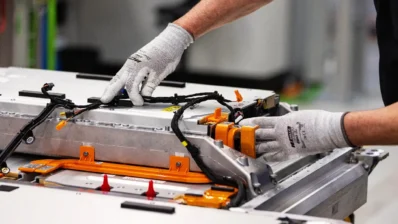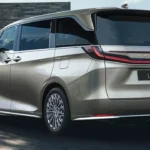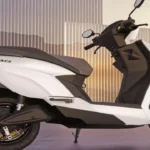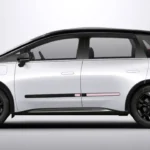Key Highlights:
- 8-year/1,60,000 km warranty for Tata Nexon EV’s lithium-ion battery.
- Battery replacement cost ranges between ₹5 to ₹7 lakhs post-warranty.
- Tata’s comprehensive service network ensures expert care for EV batteries.
- As battery technology improves, replacement costs are expected to decrease.
Electric vehicles (EVs) have revolutionized the automotive landscape, and Tata Motors is at the forefront with its popular Nexon EV. As more people consider transitioning to electric mobility, one key aspect that often raises questions is the longevity and cost of the battery — a crucial component in any EV. Naturally, potential buyers want to know how long the battery will last and what expenses they might face down the line. In this article, we’ll take a closer look at the Tata Nexon EV’s battery warranty, explore replacement costs, and explain why these factors make the Nexon EV a reliable and reassuring choice for buyers.
Tata Nexon EV Battery Warranty: Comprehensive Coverage
Tata Motors offers a solid battery warranty for the Nexon EV, designed to alleviate any worries about long-term ownership. The warranty covers 8 years or 1,60,000 kilometers, whichever comes first. This extensive coverage ensures that you’re protected against potential defects in material or workmanship during this period.
This warranty period is one of the best in its segment, offering confidence to buyers who are concerned about the reliability of the high-voltage lithium-ion battery. Given that the battery is the heart of an EV, this warranty ensures the car remains functional and cost-effective throughout its lifecycle.
Battery Replacement Cost: What to Expect
While the battery is expected to last the lifespan of the car, there’s always the possibility of needing a replacement after the warranty period. Replacing a Tata Nexon EV battery can be a significant expense. Based on industry estimates, the cost of replacing the battery ranges between ₹5 to ₹7 lakhs, depending on market conditions and technological advancements at the time of replacement.
The high cost of the battery stems from the use of advanced materials and technology required to ensure long-range, high-performance driving. However, as battery technology evolves, prices are expected to decrease over time, making future replacements more affordable.
Also Read: MG ZS EV: The Best Electric SUV Deal or a Buyer’s Regret?
What to Consider Before Replacement
Before deciding to replace your battery, it’s essential to assess a few factors:
- Battery Degradation: Unlike combustion engines, EV batteries degrade over time, but they rarely fail outright. It’s important to monitor the battery’s capacity through diagnostic tools to see if replacement is necessary.
- Manufacturer Support: Tata Motors offers significant support post-warranty with service centers equipped to handle battery-related issues. It’s always a good idea to check with authorized service centers for repair or refurbishment options before considering a full replacement.
- Insurance Coverage: Some EV insurance policies cover battery replacement, making it less of a financial burden in case of unexpected failures.
Value Proposition of Tata Nexon EV’s Battery Warranty
The Tata Nexon EV battery warranty is structured to offer long-term value and minimize maintenance concerns. With the extensive coverage, potential buyers can rest assured that they are protected from major battery issues for a significant portion of the vehicle’s life.
Furthermore, with more EVs hitting the market and growing competition, Tata’s battery replacement costs are likely to decrease over time, making long-term ownership even more affordable.
ELCTRIK Speaks
This extensive warranty, combined with the potential for lowering replacement costs in the future, makes the Tata Nexon EV an excellent investment for buyers seeking long-term assurance and peace of mind. As battery technology continues to evolve, the value of these warranties will only increase. Consequently, Tata Motors will strengthen its position as a reliable and forward-thinking player in the competitive EV market.







